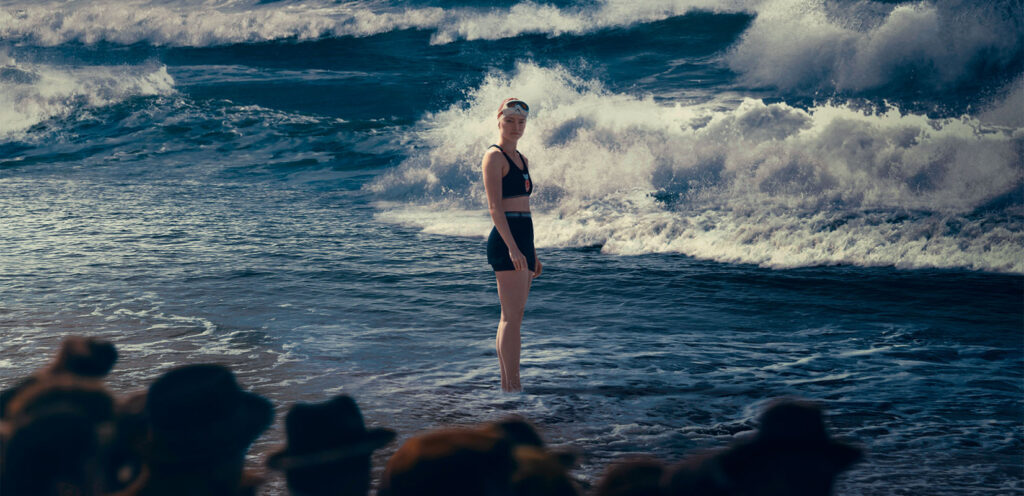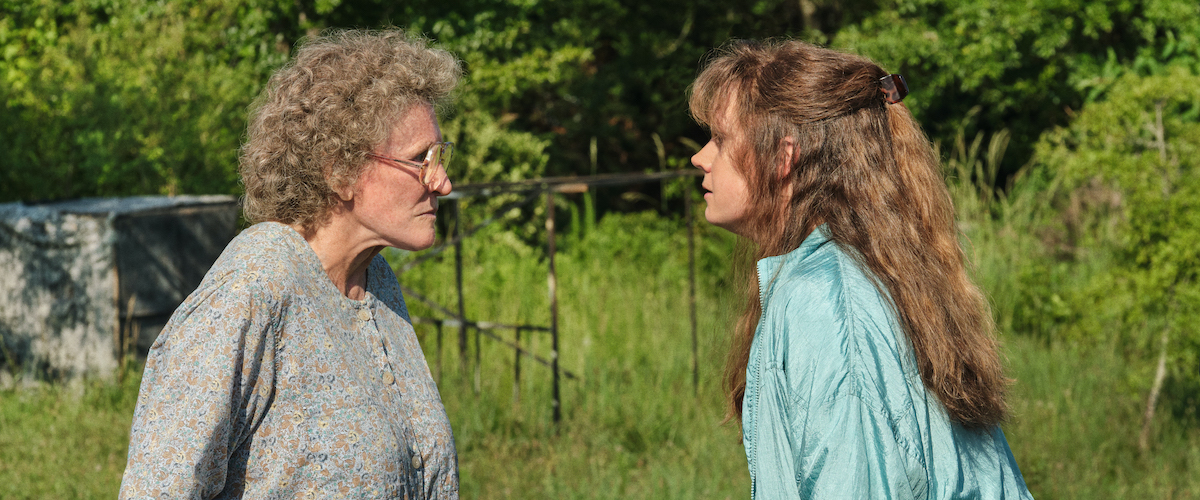No, this isn’t a rip-off of Ernest Hemingway; it’s a rip-off of Nyad, which garnered two Oscar nominations. I can pretty much guarantee this heart-warming Disney-fied alternative will not garner any, but that doesn’t leave the picture without redeeming qualities.
As a teen, Gertrude “Trudy” Ederle (Daisy Ridley) almost died of measles. In the film, the doctor warns the next time he descends the staircase, he will bring the ultimate bad news. But it was Trudy who descended the staircase instead. Dunno what happened to the doctor; it’s possible he’s still up there. Trudy wasn’t done; she had the fight of her life ahead of her in announcing to the world that 1920s America was progressively constipated despite recently giving women the vote.
I do not know how much of this story is true – and, unfortunately, the first hour of subject matter is way too heavy-handed to take seriously as a progressive film – but Young Woman and the Sea set out to describe the impossibilities of Gertrude Ederle swimming the English Channel in great detail. First and foremost, in the 1910s, women didn’t swim. Like, not at all. Such is illustrated by a 1914 ferry disaster reported to us in which 847 people, mostly women, died. Why mostly women? Because they couldn’t swim.
The film gleefully exacerbates the sitch when a mortified and very determined Trudy insists she wants to learn to swim and is met with cold resistance, again and again and again. Her father wants her to be a butcher, which she also cannot be, but at least that taboo is more tangible as they all li ve above her father’s butcher shop. Turns out Trudy is a pretty determined person, getting her way by playing “Ain’t We Got Fun” on the ukulele endlessly until the fam gives in. (Until the neighborhood gives in, to be fair).
ve above her father’s butcher shop. Turns out Trudy is a pretty determined person, getting her way by playing “Ain’t We Got Fun” on the ukulele endlessly until the fam gives in. (Until the neighborhood gives in, to be fair).
When finally given the chance to swim, Trudy earns the right to heat the boiler with coal. I’m not exactly sure how we get from “can barely dogpaddle” to “the greatest swimmer in the world,” but rest assured that will happen. All of this is stuff is painful establishing background. I mean, yes, it is worth knowing that Trudy Ederle’s Olympic career was stifled by sexist coaching. This is weird background material. I mean really weird, because an Olympic gold medal would be a story in and of itself, but in the case of Gertrude Ederle, we only care that she came home with a gold and two bronzes instead of four golds. And the entire Olympic scene, which would have been the denouement in most films, is a throwaway “well, this happened, too, and see how sexism ruined what should have been a great triumph?” here.
It took me a while to get into Young Woman and the Sea, and by the time I did, we are essentially rehashing the plot of Nyad. I knew the outcome, of course. Any decent sports or gender historian should, and, yet, the film still managed to make me care about Ederle’s struggle. Would this have been a better film if Nyad didn’t exist? Impossible to say, BUT, I guarantee it still wasn’t “Best of the Year” material no matter what. Gertrude Ederle’s biography is important because she had the luxury of being a feminist icon. No, we don’t hold that against her, but it means more when a notable historical subject has to choose between what’s important and what is required to live. I don’t think Trudy Ederle ever had to make such a choice.
There once was a swimmer named Trudy
Who came off as perpetually moody
History would impanel
With her attempt at the Channel
Yet, male contemporaries might still call her “RUDE”-y
Rated PG, 129 Minutes
Director: Joachim Rønning
Writer: Jeff Nathanson, Glenn Stout
Genre: Current events
Type of being most likely to enjoy this film: Feminists
Type of being least likely to enjoy this film: The kind of person who roots against the kids in Footloose



